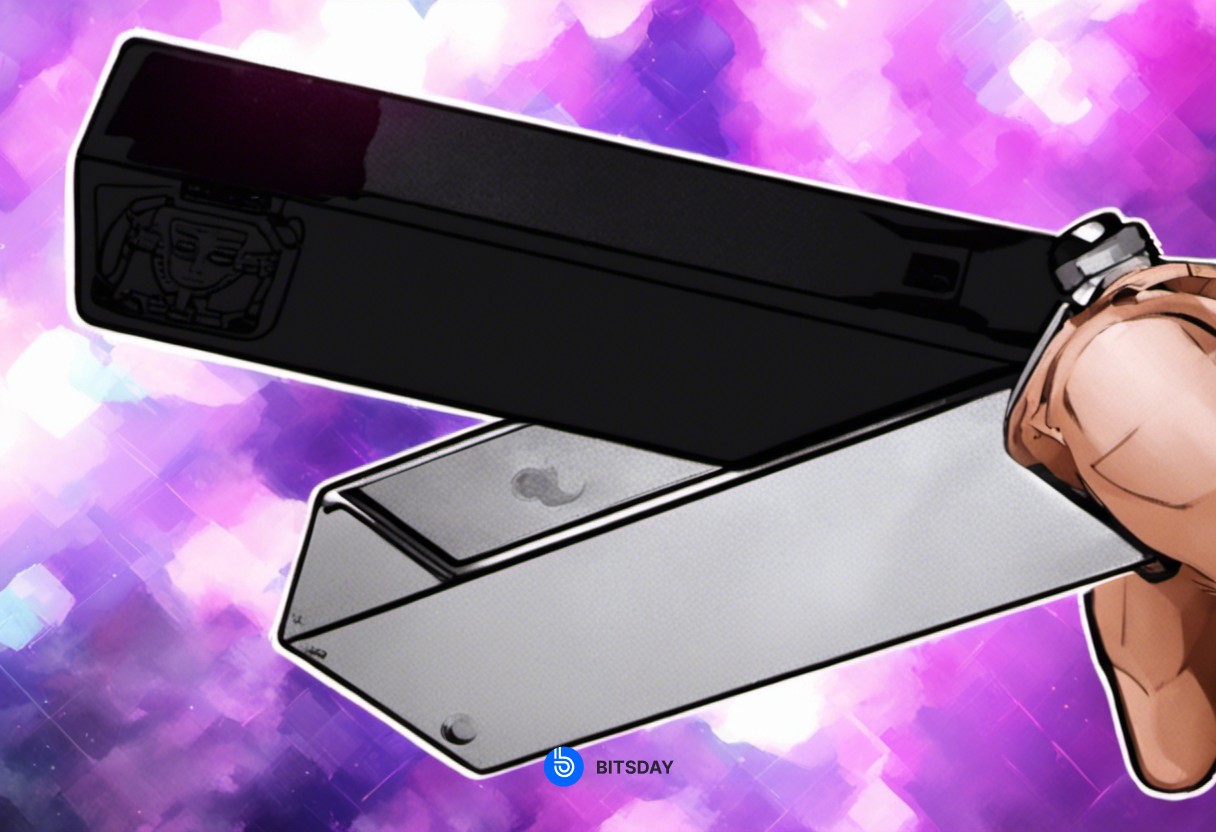Ledger's Key Recovery Solution Unveiled

Notwithstanding the substantial criticisms it has faced within the cryptocurrency community, Ledger, the distinguished hardware wallet company, is poised to introduce its much-anticipated cloud-based solution for private key recovery. This strategic move by Ledger has been met with a blend of anticipation and skepticism, underscoring the dynamic nature of the crypto landscape.
On a pivotal date, the 24th of October, Ledger officially unveiled Ledger Recover, an innovative identity-based service that promises to revolutionize private key recovery for users of Ledger's renowned hardware wallets. This announcement was not confined to traditional channels but was broadcast across X, the platform formerly known as Twitter, adding a modern twist to the unfolding narrative.
Simultaneously, Ledger also released the open-source code for Ledger Recover on GitHub, a move aimed at fostering transparency and community engagement. This open-source initiative reflects Ledger's commitment to collaborative development, a cornerstone of the blockchain and cryptocurrency ethos.
Empowering Ledger's seed phrase recovery solution is the blockchain protection platform, Coincover. This paid subscription service allows users to securely back up their Secret Recovery Phrase (SRP), a crucial component in safeguarding their private keys and, consequently, their access to cryptocurrency assets. This subscription model introduces a recurring financial element to Ledger's ecosystem, a step that has been met with varying degrees of enthusiasm among its user base.
A spokesperson from Ledger elaborated on the intricacies of their security measures, clarifying that Ledger's wallet encryption process begins with the transformation of a "sequence of random 1s and 0s." From this initial data, the SRP is meticulously computed. This encrypted string of numbers is subsequently fragmented into three distinct pieces, each serving a pivotal role in the creation of a secure backup for the SRP.
It's essential to underscore," the representative emphasized, "that the Ledger Recover service exclusively interacts with these fragments and never gains access to your SRP in its readable form." The methodology employed for the distribution of these encrypted SRP fragments involves an intricate system of end-to-end encryption and authentication, with the orchestration of these safeguards entrusted to three independent entities: Ledger itself, Coincover, and EscrowTech.
The implementation of this multi-layered approach, as elucidated by the spokesperson, is driven by a core principle— the division of sensitive information into fragments that are essentially meaningless in isolation. This distribution strategy ensures that no single company has unfettered access to the complete backup, thereby fortifying the security infrastructure and eliminating any potential single points of failure.
The inception of Ledger Recover stems from a desire to offer users an enhanced level of resilience in the eventuality of losing or compromising their SRP. Charles Guillemet, Ledger's Chief Technology Officer, emphasized the purely optional nature of Ledger Recover as a recovery service. Users retain the freedom to choose whether to opt for this additional layer of security, with their existing Ledger experience remaining unaffected.
Upon its debut, Ledger Recover will be initially compatible with the Ledger Nano X, with integration for Ledger Stax and Ledger Nano S Plus earmarked for the near future. It's important to note that this solution won't be compatible with the Ledger Nano S, as outlined in the Ledger Recover FAQ, introducing a delineation between Ledger's product offerings.
In its initial phase, Ledger Recover will be accessible exclusively to passport or identity card holders in select regions, namely the United States, Canada, the United Kingdom, and the European Union. However, Ledger has expressed its intention to expand its availability to encompass more countries and provide support for a wider range of document types, a testament to the company's vision for global inclusivity.
Notably, Ledger sought to differentiate its identity verification process for Ledger Recover from the conventional Know Your Customer (KYC) checks typically conducted by centralized cryptocurrency exchanges. Ledger stressed that their recovery system solely necessitates a "valid, government-issued document," making the identity verification process notably less intrusive when compared to KYC, which often encompasses additional data points such as financial information, criminal records, and citizenship verification.
As the crypto world eagerly anticipates Ledger Recover's launch, social media discussions have already hinted at the subscription cost, which is set at $9.99 per month, roughly translating to $120 per year. This pricing model is expected to resonate with some users, while others may scrutinize it more closely, considering the implications of a subscription-based service within the cryptocurrency space.
A noteworthy aspect of the subscription model is the provision for temporary suspension in the event of non-payment. Users who fall behind on their subscription fees will have the opportunity to reactivate their subscription within a grace period of nine months. However, a stipulated administrative fee of 50 EUR, in addition to any outstanding balances, will apply to such reactivations.
This rollout of Ledger Recover comes after an intriguing hiatus that occurred in May 2023, when Ledger decided to temporarily suspend its recovery service in response to vocal community feedback. During this period, Ledger's CEO, Pascal Gauthier, conveyed the company's commitment to re-launching the product once its open-source code was made available. This hiatus underscored the intricate dynamics between cryptocurrency companies and their passionate user communities.
In a fascinating juxtaposition, Ledger's foremost competitor, Trezor, has chosen to adopt an alternative strategy by eschewing the introduction of a cloud-based private key recovery solution. Instead, Trezor has championed a physical backup solution, exemplified by the recent introduction of its physical seed phrase recovery tool, known as Trezor Keep Metal, in mid-October 2023.
This divergence in approach underscores the divergent philosophies in the cryptocurrency hardware wallet space, with Ledger embracing the cloud and subscription-based model and Trezor adhering to the physical, non-cloud alternative. This ideological contrast is emblematic of the ever-evolving crypto landscape and the myriad paths companies can traverse to cater to the diverse needs of their user base.
You might also like: Bitcoin's Price Journey: Insights and Trends

Trending



Press Releases

Deep Dives







